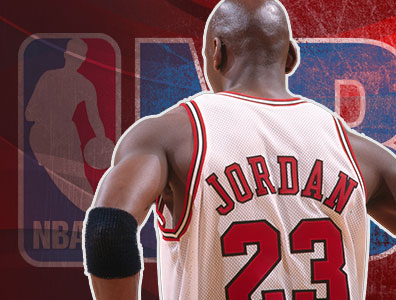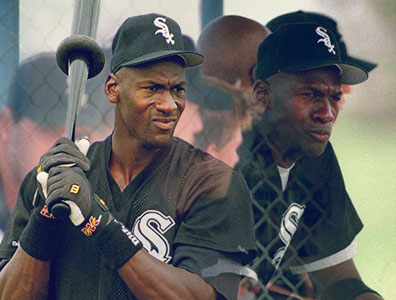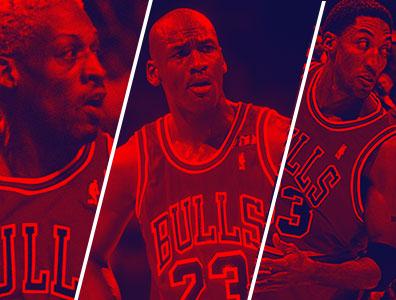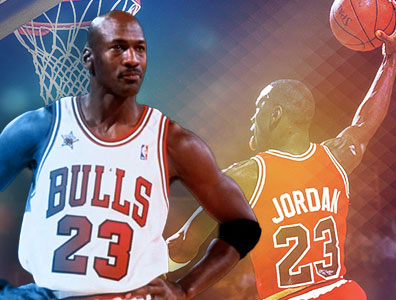On this page
Michael Jordan: The Ultimate Basketball Legend
Introduction
Celebrating Michael Jordan's recent milestone birthday on February 17, 2019, marks an excellent opportunity to reflect on his extraordinary basketball journey. Growing up in Chicago, I was fortunate to watch Jordan perform live at Chicago Stadium and the United Center . Each time he took the court, he mesmerized us with his extraordinary talent and unparalleled drive to win.
College Career
In his inaugural year at the University of North Carolina , Michael Jordan achieved an impressive average of 13.4 points per game and maintained a 53.4% shooting accuracy. His exceptional performance earned him the title of ACC freshman of the year. A defining moment of that season was when Jordan made the crucial shot that secured the 1982 National Championship against Georgetown, a significant rival of his. Patrick Ewing .
Jordan's NCAA success continued to grow throughout his subsequent two years at UNC. After three years of collegiate basketball, he boasted an average of 17.7 points per game, a 54% field goal percentage, and 5 rebounds per contest. Following his sophomore and junior years, he earned a spot on the NCAA All American first team. In 1984, he secured both the Naismith and Wooden college player of the year awards before deciding to enter the NBA draft early, thus forfeiting his final year of eligibility.
Early Years of Professional Career
Shortly after the Chicago Bulls selected Michael Jordan with the third overall pick in the 1984 draft, he quickly rose to fame by winning the rookie of the year award in 1985. Although he faced a setback in his second season due to a broken foot, he returned stronger than ever in his third year. NBA During the 1986-1987 season , Jordan delivered one of the most electrifying offensive performances in the history of the NBA. He became only the second player, alongside Wilt Chamberlain, to surpass 3,000 points in a season, averaging an astounding 37.1 points per game . Additionally, he achieved the rare distinction of recording 200 steals and over 100 blocked shots . Despite the Bulls consistently reaching the playoffs, they faced fierce competition from teams like the Detroit Pistons led by Isiah Thomas, who thwarted his championship aspirations for several seasons.
Teaming up with Scottie Pippen, Horace Grant, and John Paxon , Jordan eventually clinched his second

The First 3-Peat
title during the 1990-1991 season . The Bulls triumphed over the Knicks and the 76ers in the initial playoff rounds, setting the stage for a highly anticipated showdown against the Bad Boy Pistons . After suffering defeats to Detroit in preceding years, Jordan and his teammates swept the Pistons in a stunning four-game series. This victory led them to face Magic Johnson and the Los Angeles Lakers in Chicago’s very first NBA finals. The Bulls emerged victorious, winning the series 4-1, with Jordan earning his first finals MVP award. MVP award The 1991-1992 season brought similar success as Jordan averaged 30.1 points per game while shooting 52%. He added another MVP award to his accolades and confronted Clyde Drexler and the Portland Trail Blazers in the finals. In the first game, he scored 35 points in the first half, setting a record with six 3-point shots, casually shrugging as he returned to defense. The Bulls ultimately triumphed over the Trail Blazers in six games, achieving back-to-back NBA championships and Jordan being named finals MVP for the second time.
Throughout the 1992-1993 season, Michael Jordan continued his dominance, leading the Chicago Bulls to their first three-peat by defeating
the Phoenix Suns in a six-game series, during which Air Jordan averaged a finals-record 41 points per game, becoming the first player to win three consecutive NBA finals MVP awards . Amidst this success, however, personal troubles loomed, including allegations and the tragic death of his father. In response, Michael decided to attempt a new path Charles Barkley in baseball, partly to honor his late father. Despite his fierce competitiveness, he struggled in the minor leagues, hitting only .202 with just 3 home runs and 51 RBIs.
Jordan Retires…
…on October 6th, 1993 amongst both gambling After shedding the weight of his past, Jordan returned to his first love, basketball. Following a highly publicized retirement, during which the Bulls retired his jersey and erected a statue outside the United Center, Michael re-entered the league under the #45 jersey. Although he guided his team to the 1995 playoffs, they fell short of achieving ultimate success. professional baseball Leading into the 1995-1996 season, Jordan and the Bulls prepared diligently, driven by the defeat they faced the previous year. Their efforts culminated in a historic 72-10 record, leading the team to a fourth NBA title by overcoming the Seattle Supersonics in the Finals. Michael became just the second player to take home every NBA MVP accolade that season, earning the All-Star game MVP and the regular season MVP, . In the 1996-1997 season, the Chicago Bulls once again dominated the league, finishing with a 69-13 record. Though Jordan lost the MVP award to Karl Malone of the Utah Jazz , it seemingly fueled his resolve, particularly during a gripping Finals match against the Jazz. In game 5, tied 2-2 and while battling a stomach virus, Air Jordan scored 38 points and led his team to victory in what is now famously known as the “flu game.” The Bulls celebrated yet another championship, with MJ winning his fifth NBA Finals MVP. His Airness In his final season with the Chicago Bulls (1997-1998), Jordan truly shone. He secured his fifth regular season MVP and the MVP of the All-Star game. Additionally, he was named to the All-NBA First Team and First Defensive Team . He navigated the Bulls through an intense seven-game series against the Indiana Pacers to reach the Finals against the Jazz once again.

Michael Returns to Basketball
...In a legendary moment during NBA history, with Chicago down by three points and less than a minute left, Phil Jackson called a timeout. After the break, MJ took control, hitting a clutch shot over multiple defenders to cut the deficit to one point. After stealing the ball from Malone, he faced off against Russell just moments later, making a decisive crossover move that resulted in a game-winning jump shot to clinch the championship for the Bulls. This performance earned Michael his sixth and final NBA Finals MVP .
Second Three Peat
Following his remarkable achievement of winning six championships along with six Finals MVP awards with the Chicago Bulls, Michael Jordan officially announced his second retirement from basketball. Although he made a return to the game, this time with the Washington Wizards, he was not quite the same player that the world had witnessed in his Chicago days. Jordan left the NBA with a legacy cemented as the greatest player of all time , a title he continues to hold in the eyes of many. regular season , and the Finals.
With help from Scottie Pippen and Dennis Rodman Accurately formulated strategies and insights for various casino games such as blackjack, craps, roulette, and countless others that can be enjoyed.
Kindly check your email and click on the link provided to finalize your registration.

At the end of game six…
Explore the Top Online Casinos Available in Your Region
Retirement
Calculator for Selling Lottery Jackpot Tickets


